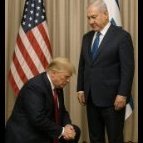Trump offers to help resolve Gulf crisis, UAE tightens squeeze on Qatar
-
Recently Browsing 0 members
- No registered users viewing this page.
-
Topics
-
-
Popular Contributors
-
-
Latest posts...
-
300
Recent trip to UK with Qatar air- A very sad, heartbreaking visit.
Total rubbish. Show one example of that, and BTW, the Marxists are the radical right who want to do away with democracy. Bend the knee, ring kissing morons. https://www.newyorker.com/magazine/2025/06/09/curtis-yarvin-profile -
133
Greta Thunberg’s Gaza Aid Voyage Sparks Controversy After Senator’s Mocking Remark
Do you think they should nuke Israel? this is not a religious genocide. -
133
Greta Thunberg’s Gaza Aid Voyage Sparks Controversy After Senator’s Mocking Remark
So you refuse to answer my question. ill assume you support Netanyahu and Smotrich and wiping out the Palestinians. Shame on you for that and for refusing to admit it. -
61
Louis Theroux: If you were shocked by my film on Israeli settlers in the West Bank, you ...
You have more than once applauded the military strategy of the current government in Israel. We can discuss if it is genocide or not, but 50.000, probably much more killed, most of them women and children, is mass murder. At least in my book. You may call it self defense. -
133
Greta Thunberg’s Gaza Aid Voyage Sparks Controversy After Senator’s Mocking Remark
It does . Zionists believe in Israelis right to exist . That is what you believe in You are a Zionist, whether you like it or not -
133
Greta Thunberg’s Gaza Aid Voyage Sparks Controversy After Senator’s Mocking Remark
All those Arab nations helping those poor poor Palestini ppl. *Allah Wept ......
-
-
Popular in The Pub






.thumb.jpeg.d2d19a66404642fd9ff62d6262fd153e.jpeg)






Recommended Posts
Create an account or sign in to comment
You need to be a member in order to leave a comment
Create an account
Sign up for a new account in our community. It's easy!
Register a new accountSign in
Already have an account? Sign in here.
Sign In Now